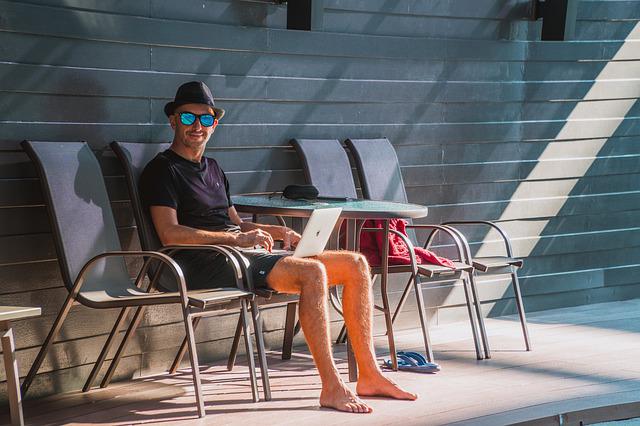
Living a nomadic lifestyle certainly comes with numerous advantages. First and foremost, it frees you from the shackles of your daily 9-to-5 job, chores, and other responsibilities. In return, it allows you to see and admire the world and do as you please — at least in theory.
As with everything, nomad life also has its fair share of challenges and inconveniences. Not everyone can lead a life without roots when you’re mostly alone, separated from others, and left on your own to deal with potential problems which appear regularly. As a nomad, you’ll sometimes suffer from a lack of privacy, other times from loneliness, as well as endless unexpected turns of events.
As you can see, it’s not for everybody. But if you feel like you could be happy living a nomad life, there’s nothing left to do but do some research.
To get started, you might want to take a look at our concise guide to a nomadic lifestyle:
How to Prepare?
Becoming a nomad isn’t something you can just decide to do on a whim. On the contrary, you need to mentally and physically prepare for it. How you approach this issue will depend on your plans, though. For example, as a digital nomad in a camper, you will probably need your own Wi-Fi and portable generators, which, in turn, will be entirely obsolete if you don’t plan to work and move only on foot.
Below are a few things to keep in mind as you get ready for your big adventure:
- Get rid of most of your belongings — Remember, you’ll be living out of a backpack or suitcase, so you don’t need much. Plus, it’s easier to move around when you travel light.
- Sort out your finances — Quitting your job and leaving everything behind will obviously impact your finances. Make sure you have enough money saved up to support yourself during your travels. You can also decide to lead a life of a digital nomad if your job allows remote work. It would also be wise to check more about doctors life insurance in the area where you plan to live, and see whether you can afford it.
- Decide what you need – Before you start packing your bags, sit down and make a list of things you absolutely need. Doing this will help you travel light and only pack the essentials.
- Learn some basics — Before setting off, it’s a good idea to learn some basics about the countries you’ll be visiting. This includes things like the local language, customs, and culture.
- Get your vaccinations — Depending on where in the world you’re planning to go, you might need to get vaccinated against certain diseases. So, make sure to do your research and get the shots you need.
- Get travel insurance — Last but not least, don’t forget to get travel insurance. It will protect you in case of lost luggage, medical emergencies, and other potential problems.
What to Expect?
As we’ve already mentioned, a nomadic lifestyle comes with both advantages and disadvantages. Below are a few things you can expect when living a nomad life:
- Freedom — One of the best things about being a nomad is freedom. You’re free to travel wherever you want and stay for as long as you want. Plus, you don’t have to stick to a strict schedule or adhere to anyone’s rules but your own.
- Constant change — Another thing to keep in mind is that a nomadic lifestyle is all about change. You’ll constantly be moving from one place to another, which can be both exciting and exhausting.
- Lack of stability — Since you’ll be on the move, you can forget about having a stable home or job. This factor can be good or bad, depending on your personality and preferences.
- Limited resources — Another downside of being a nomad is that you’ll often have limited resources. For example, you might not have access to a proper kitchen or laundry facility. It is something you need to be prepared for.
- Language barriers — Depending on where in the world you’re traveling, you might face some language barriers. It can make things like ordering food or asking for directions quite tricky.
- Risk of getting sick — When traveling to developing countries, there’s always a risk of getting sick. This is why it’s essential to get vaccinated before you leave and be careful about what you eat and drink.
Of course, these are just some of the things you can expect when living a nomadic lifestyle. The reality is that each person experiences it differently, and there’s no one-size-fits-all answer.
Tips for Living a Successful Nomadic Lifestyle
If you’ve decided that a nomadic lifestyle is for you, you can do a few things to make sure your experience is a successful one. Below are a few tips to keep in mind:
- Stay flexible — One of the most important things you need to remember is to stay flexible. Things will rarely go according to plan, so you need to be prepared for changes and unexpected turns of events.
- Be patient — Another important thing is to be patient. It takes time to get used to the nomadic lifestyle and learn how to deal with the constant change.
- Be organized — Since you’ll constantly be on the move, it’s paramount to be organized. It includes things like keeping your belongings in order and having all your documents in one place.
- Be prepared — As we’ve already mentioned, many things can go wrong when you’re a nomad. This is why it’s crucial to be prepared for anything and everything. We cannot overstate the importance of having a backup plan and some money saved up for emergencies.
- Have fun — Finally, don’t forget to have fun. A nomadic lifestyle can be pretty challenging at times, but it’s also an incredible adventure. So, make sure to enjoy every moment of it!
The Bottom Line
As you can see, there’s a lot to consider before embarking on a nomadic lifestyle. But if you’re prepared for the challenges and inconveniences and ready to embrace the freedom it provides, there’s no reason why you shouldn’t give it a try. Who knows, you might just end up loving it.
To enjoy your nomadic life to the fullest, you need to do your research and stay prepared for anything and everything. Most importantly, you have to prepare yourself — both mentally and physically — for the hardships of travel. Be organized and always have a backup plan, and you should be fine. And don’t forget to have fun!





